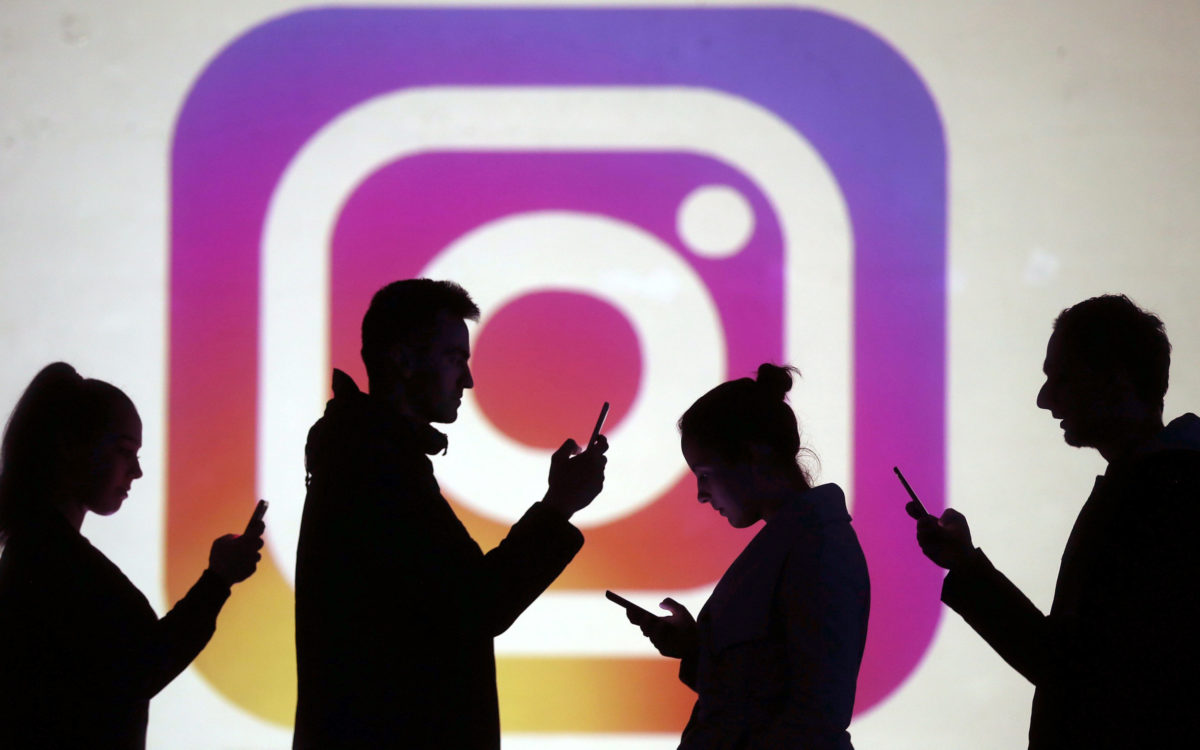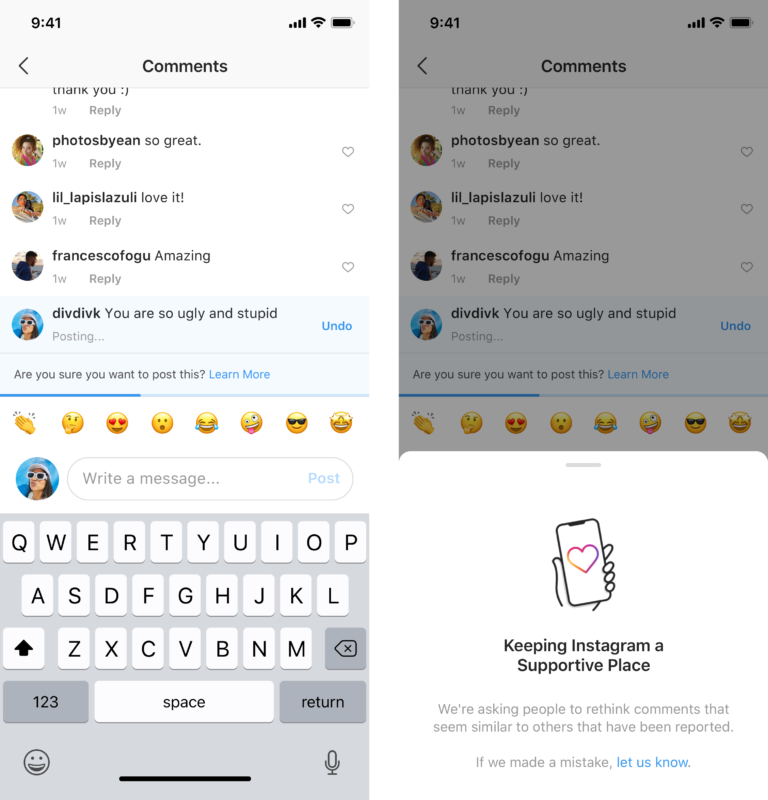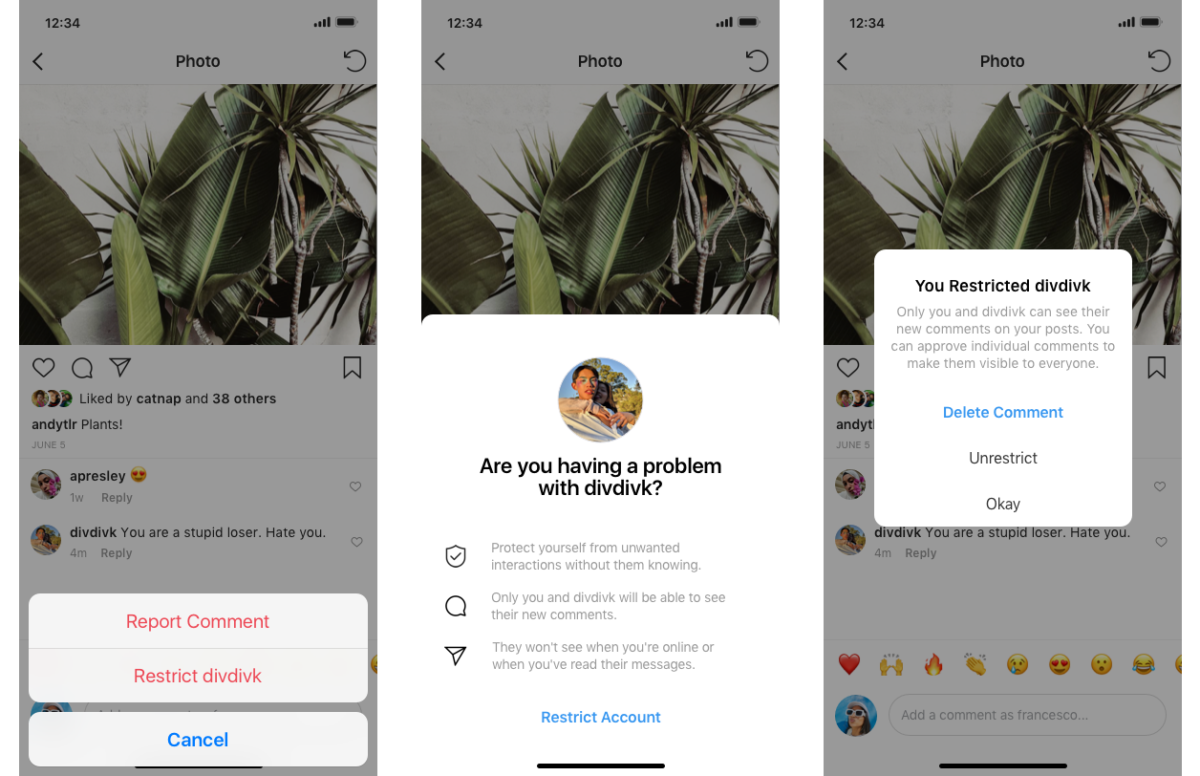Social media giant, Instagram attempts to give users peace of mind by introducing anti-bullying features and hiding the number of likes on a post.

The popular platform has taken the well-being of users into consideration and wants everyone to know that they care. On July 8, Head of Instagram Adam Mosseri made a post titled “Our Commitment to Lead the Fight Against Online Bullying“, giving a rundown on updates, new features, and their purpose.
“We can do more to prevent bullying from happening on Instagram, and we can do more to empower the targets of bullying to stand up for themselves,” He said.
The two new updates include an AI-powered detection feature and problematic user restriction. The purpose of these updates is to encourage positive interactions and to lessen bullying on the app.
The AI-powered feature detects and notifies people when their comment may be offensive and prompts them to reconsider. According to Mosseri, early tests found that people actually undo their comment when greeted by the warning.

On the other hand, the restriction feature enables users to restrict problematic users. Restricted users can comment however, it must be approved by the poster. Additionally, restricted users cannot see the posters activity status or when they’ve read their direct message.

Following recent updates, Instagram removed the like count on posts to ‘remove pressure on its users’. As a measure of success, this kind of validation can instantly boost and bring down the self-esteem of users.

In an article by BBC, Mosseri explained the goal of removing such a feature.
“We want people to worry a little bit less about how many likes they’re getting on Instagram and spend a bit more time connecting with the people that they care about,” He said.
The Royal Society For Public Health (RSPH) asked people aged 14-24 to score popular apps on their impact on mental health and wellbeing.
The report showed that young people believe Instagram has the most negative impact on mental health and wellbeing compared to Youtube, Facebook, Twitter, and Snapchat.
Additionally, TIME reported that the 2017 #StatusOfMind study found that popular social media apps were commonly associated with growing levels of anxiety, depression, bullying, and the fear of missing out (FOMO).
With the exact number hidden, users can still see the list of people who liked the post. Users can also see the likes on their own posts, but others can not.
Although not visible on mobile, you can still see the number of likes when using Instagram on a desktop.
Subscribe to FIB’s newsletter for your weekly dose of music, fashion and pop culture news!






